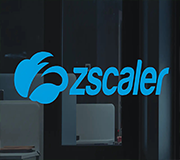Zscaler removes "test environment" from online access following speculation of a security breach.

In recent news, cybersecurity firm Zscaler found itself amidst rumours of a potential breach after an exposed "test environment" sparked concerns about unauthorized access to the company's systems. However, amidst the swirl of speculation, Zscaler swiftly addressed the situation, providing clarity and assurance to its customers and stakeholders.
Initially, Zscaler reassured the public that its ongoing investigation revealed no evidence of a breach in its customer or production environments. Emphasizing its commitment to prioritizing customer security, the company remained vigilant, closely monitoring the situation as it unfolded.
Despite initial reports dismissing the rumours as inaccurate and unfounded, Zscaler later confirmed the discovery of an isolated test environment exposed to the internet. This environment, distinct from the company's customer and production systems and devoid of any sensitive data, was promptly taken offline for forensic analysis.
Crucially, Zscaler reiterated that neither its company, customer, or production environments were impacted by the incident. This reassurance underscored the company's proactive approach to security and its commitment to maintaining the integrity of its systems.
The genesis of the rumours can be traced back to a threat actor known as IntelBroker, who claimed to be selling access to a cybersecurity company with revenue matching that of Zscaler. While the identity of the company was not disclosed, speculation arose linking the claims to Zscaler, particularly due to its revenue matching the stated figure.
Notably, IntelBroker gained notoriety following previous breaches, including the high-profile attack on DC Health Link, which exposed the personal data of U.S. House of Representatives members and staff. Subsequent breaches on companies like Acuity, Home Depot, and Weee! further cemented IntelBroker's reputation as a formidable threat actor.
In February, IntelBroker also purportedly hacked Hewlett Packard Enterprise (HPE), initially denied by the company but later confirmed to have affected a test environment.
Despite these claims, Zscaler's steadfast response to the situation reflects its unwavering dedication to transparency and accountability. While questions linger about the nature of the incident and its implications, Zscaler's commitment to security remains resolute.
As the investigation unfolds and the cybersecurity landscape continues to evolve, Zscaler's proactive measures serve as a testament to its unwavering commitment to safeguarding its customers and maintaining the trust of its stakeholders.






